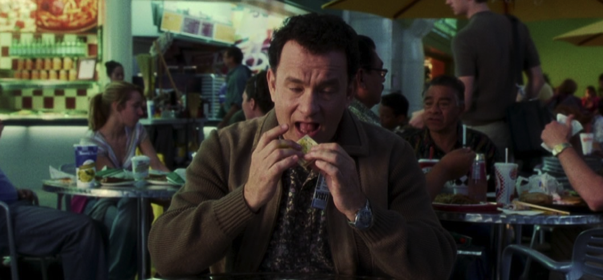




































































































They Have No Reason to Notice A Man Like Me:
Foreignness in Steven Spielberg's The Terminal
In "Strangers to Ourselves", Julia Kristeva discusses the notion of foreignness
in contemporary French society, writing that “the foreigner lives within us: he
is the hidden face of our identity, the space that wrecks our abode, the time in
which understanding and affinity founder.” The foreigner is something hidden
within the self, beyond comprehension, and a constant, uncanny threat to one's
home. Film has long functioned as a window into the cultural subconscious,
and similar investigations of cinematic otherness have been explored, most
notably by Robin Wood in his The American Nightmare: Essays on the
Horror Film. Films in the post-9/11 subgenre continue to operate within the
framework of Wood's ideas, however, in post-9/11 texts like Constantine, Inside
Man, The Avengers, Elysium, and Cloverfield, the foreigner is positioned as an
Other because of the characteristics that exclude him from the dominant
group, and he is specifically foreign in that he is not a citizen of the country in
which he resides. This notion of foreignness is the dominant theme that
resonates from Steven Spielberg's The Terminal. As an example of the post-9/11
film, The Terminal's central project is an exploration of the fear and anxiety
projected upon immigrants by an American society whom, unable and
unwilling to accept themselves as foreign, seek to either assimilate or reject the
foreigner in all of its many representations. This fear of the foreigner is
projected onto the abject body of the film's main protagonist, Viktor Navorski,
and through his experience of rejection (his exile status), temporary
assimilation (his learning proper American capitalism, gender norms, and work
ethic), and inevitable expulsion (his return home), The Terminal ultimately lays
bare Kristeva's claim that in order to accept the foreigner, we must recognize
that we are all foreigners. A link to the .pdf can be found here.